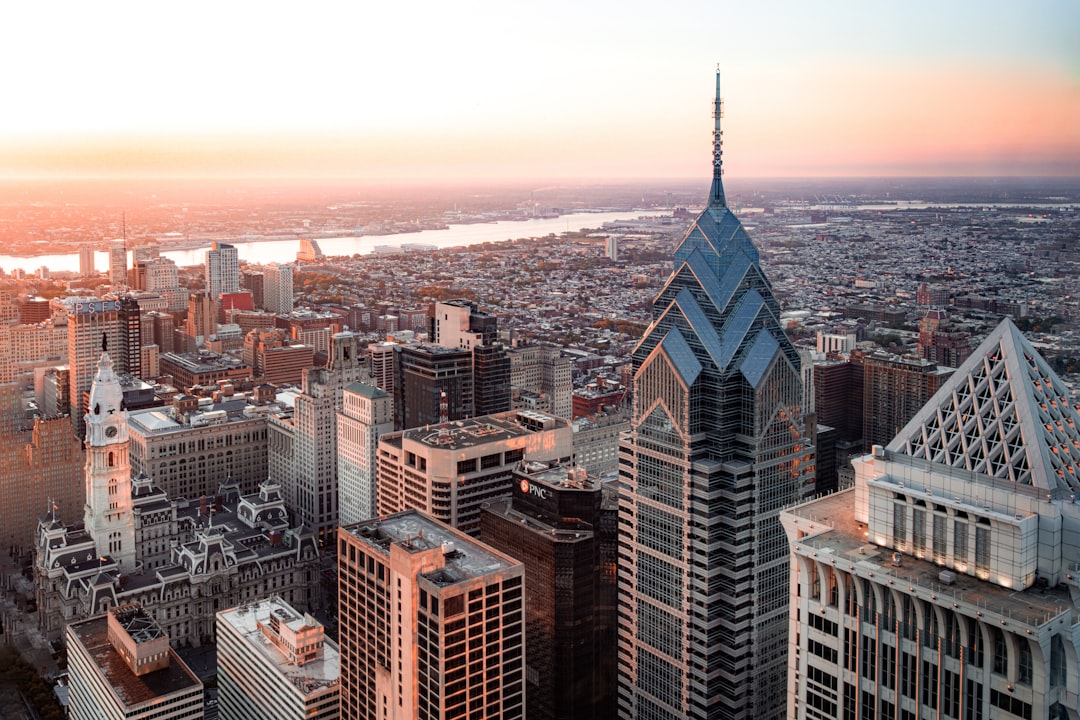In the Greater Philly Area, robocalls targeting vulnerable populations like the elderly and low-income individuals have become a significant concern. Local governments are responding by enhancing "Do Not Call" lists in collaboration with telecoms and legal professionals, aiming to protect residents from nuisance calls while promoting ethical marketing practices among law firms. They employ technology, public awareness campaigns, and legal actions against violators, particularly using the Telephone Consumer Protection Act (TCPA) and Pennsylvania's regulations. Residents can access Do not call lawyer or Do not call attorney services in Philadelphia to seek relief from robocalls and hold violators accountable. Workshops and informational sessions empower citizens to identify and report suspicious calls, fostering a safer environment for all Philadelphia residents.
In the age of technological advancement, the Greater Philly area, like many urban centers, faces a persistent challenge from robocalls targeting vulnerable populations. This article delves into the multifaceted problem of automated telemarketing calls and explores local government efforts to combat them. From understanding the issue through the local lens to empowering residents with knowledge about do not call laws and community engagement strategies, we examine initiatives aimed at protecting at-risk communities from fraudulent calls, including those seeking legal counsel from do not call lawyers in Philadelphia.
Understanding the Robocall Problem in Philadelphia: A Local Perspective

In the Greater Philly Area, like many urban centers across the nation, residents have been increasingly plagued by relentless robocalls, a problem that disproportionately affects vulnerable populations. These automated calls, often promoting legal services or containing misleading offers, are not only intrusive but also pose significant challenges to local governments seeking to protect their citizens. With the rise of advanced technology, scammers have found new ways to target individuals through phone networks, making it crucial for Philadelphia’s local government to step up its efforts in combating this growing issue.
The prevalence of “Do Not Call” laws and regulations, including those related to lawyer and attorney advertising, is a double-edged sword. While they aim to protect consumers from unwanted solicitations, they also create barriers for legitimate legal firms that offer essential services. In response, Philadelphia’s local authorities are navigating this delicate balance by collaborating with telecommunications companies and legal professionals to establish more robust do-not-call lists and enforce anti-robocall measures. The goal is to ensure that vulnerable residents are shielded from these nuisance calls while fostering a business environment that encourages ethical marketing practices among lawyer and law firm institutions in the city.
Vulnerable Populations: Identifying and Protecting at-Risk Communities

In the context of robocalls, vulnerable populations refer to groups within the Greater Philly Area that are particularly susceptible to the deleterious effects of unsolicited phone calls. These communities often include the elderly, individuals with limited access to technology, and those living in low-income areas. The former may not be as tech-savvy, making them easy targets for automated calls pushing illegal services or scams. The latter, due to financial constraints, might lack the resources to fight back against these calls effectively.
Protecting these at-risk communities necessitates a multifaceted approach. Local governments in Philadelphia are leveraging technology and public awareness campaigns to identify and mitigate robocall issues. They encourage residents to register for Do Not Call lists with both state and national authorities. Additionally, they collaborate with reputable law firms specializing in consumer protection, such as those offering Do not call lawyer services in Philadelphia, to educate citizens on the risks and legal recourse available against persistent violators.
Legal Framework: Existing Laws and Regulations Targeting Telemarketers

In the fight against robocalls targeting vulnerable populations in the Greater Philly Area, understanding the legal framework is paramount. Existing laws and regulations, such as the Telephone Consumer Protection Act (TCPA), provide a robust foundation to combat illegal telemarketing practices. These federal laws are further supported by state-level measures, including Pennsylvania’s specific regulations on automated calls, which aim to protect residents from unwanted and deceptive calls.
Philadelphia’s legal community plays a crucial role in enforcing these rules. Local do not call lawyer and attorney firms in Philadelphia are instrumental in helping individuals and communities navigate the complexities of telemarketing laws. Their expertise ensures that violators are held accountable, providing relief to those affected by harassing or fraudulent robocalls. With their help, residents can take legal action against offending parties and seek compensation for any resulting damages or harassment.
Local Government Initiatives: Strategies to Combat Robocalls

Local governments in the Greater Philly Area have taken proactive measures to combat the rising issue of robocalls targeting vulnerable populations, such as seniors and individuals with limited access to information technology. One key strategy involves collaborating with telecommunications providers to implement Do Not Call lists and enhance call blocking technologies. These initiatives ensure that residents can opt-out of unwanted calls from law firms, attorneys, and other businesses promoting legal services.
Additionally, local authorities conduct public awareness campaigns, educating citizens about the risks associated with robocalls and providing guidance on how to protect themselves. They also work closely with consumer protection agencies to investigate complaints and take legal action against telemarketers who target vulnerable communities. This multi-faceted approach aims to create a safer environment for Philadelphia residents by reducing the frequency and impact of these intrusive calls, particularly those related to law services like Do not call lawyer Philadelphia, Do not call attorney Philadelphia, or Do not call law firm Philadelphia.
Community Engagement: Empowering Residents to Fight Back Against Fraudulent Calls

In the battle against robocalls targeting vulnerable populations in the Greater Philly Area, local governments are harnessing the power of community engagement. By empowering residents with knowledge and tools, they’re fostering a collective defense against fraudulent calls. Workshops and informational sessions are being organized to educate citizens on how to identify and report suspicious calls, including those from do not call lawyer Philadelphia, do not call attorney Philadelphia, or do not call law firm Philadelphia numbers.
This pro-active approach encourages residents to become watchful guards against scammers, using their collective voices to demand respect for their privacy. With increased community participation, local governments aim to create a robust network that discourages unwanted calls and protects the most vulnerable individuals from falling victim to fraudulent schemes. This collaborative effort extends an offer of assistance to anyone seeking protection from relentless robocalls, with resources readily available for those who need a lawyer for do not call Philadelphia.






